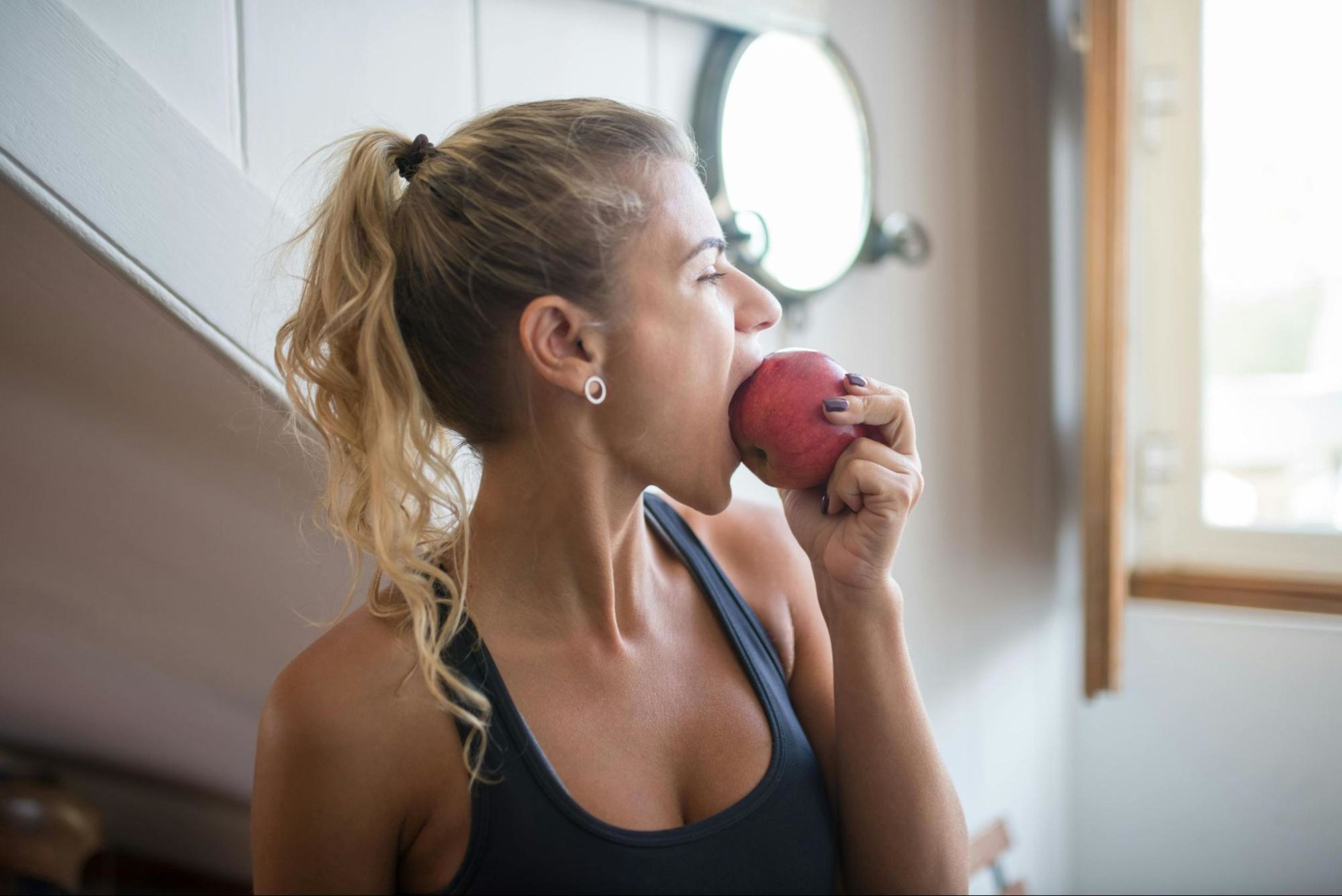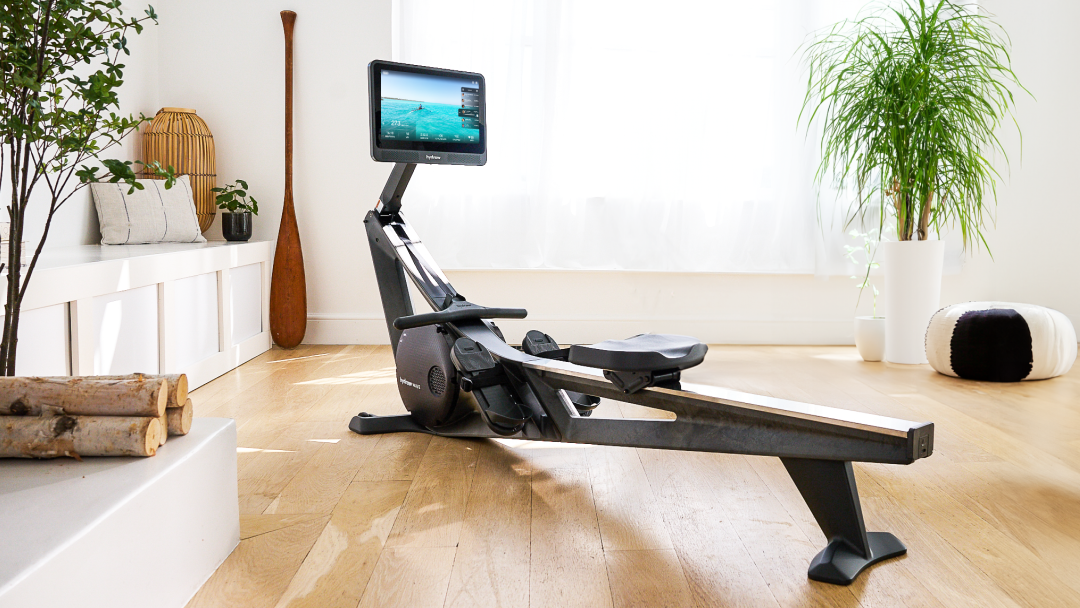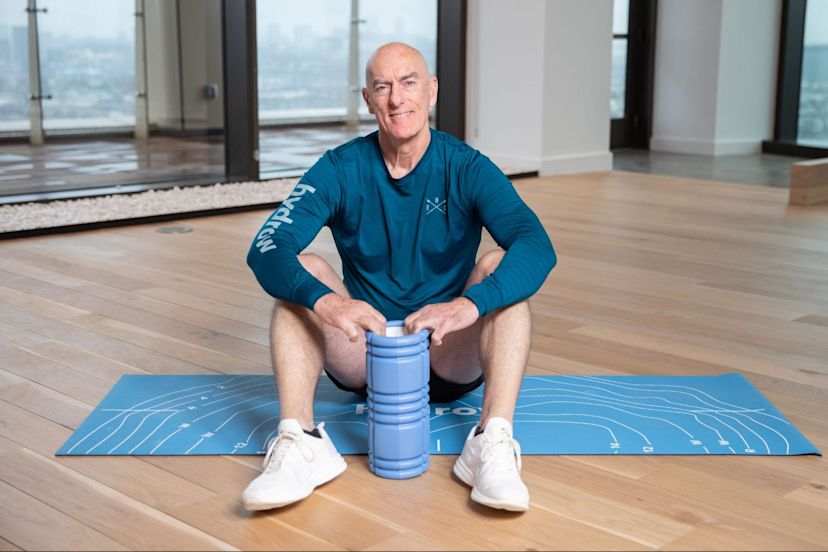Should You Eat Before Working Out?

Trying to decide whether you should eat before hitting the gym? The debate over whether you should eat before working out—and if so, what—is common among fitness enthusiasts and experts.
In this blog, we’ll explore the pros and cons of eating food before exercising, considering individual preferences, goals, and the types of physical activity you’ll perform. Let’s dive into:
The benefits of eating before exercising
When deciding between a fasting workout or a food-fueled one, it’s important to acknowledge eating before exercise offers several benefits, including:
Energy boost
Improved performance
Muscle preservation
Let’s dig in!
Energy boost
One of the primary benefits of eating before a workout is the boost of energy it can provide before you hit the weights. Consuming a small snack or meal that is rich in carbohydrates and lean protein can significantly enhance your energy stores to improve your workouts.
If you want to do HIIT training or endurance activities, for example, these energy stores are important to keep you going throughout your exercise.
Eating a pre-workout snack like a banana with peanut butter or a turkey sandwich can help to maintain your stamina and performance throughout your session.
Improved performance
Eating before a workout can also improve your overall performance. Your body relies on carbohydrates as a preferred source of energy, so consuming them before a workout guarantees your body a store of glycogen—a stored form of energy—to draw from.
These energy banks are important for activities requiring sustained effort, like swimming, cycling, or rowing. You’ll probably find that you can work out harder and longer by providing your body additional energy before these exercises.
Muscle preservation
Consuming a small amount of protein before exercising can help to preserve muscle mass. When you work out after a long period of fasting, your body might break down muscle protein for energy, especially during high-intensity workouts.
If your goal is to preserve muscle mass, it’s more important to hit your protein target throughout the course of the day than to necessarily worry about getting protein before exercise every time. That being said, a pre-workout snack containing amino acids, like a protein smoothie or yogurt, can prevent muscle breakdown and aid in muscle recovery and growth by helping to meet your daily protein needs.
The drawbacks of eating before exercising
While there are many advantages to having a quick snack or small meal before hitting the gym, there are also several reasons why you may not want to eat before a workout, including:
Digestive discomfort
Blood sugar fluctuations
Individual variation
Let’s find out why:
Digestive discomfort
One of the biggest disadvantages of eating before working out is the potential for digestive discomfort. If you consume a large meal or a meal high in fiber or fat too close to your workout, you may experience bloating, nausea, or cramping.
For certain exercises like swimming or yoga, this may detract from your ability to engage with your exercise fully. Instead, choose the right type of foods that are compatible with your intended workout and allow enough time for digestion before starting. A small snack 30 minutes to an hour before exercising may be easier on your stomach.
Blood sugar fluctuations
Eating before a workout can sometimes cause blood sugar levels to spike, then drop, leaving you feeling sluggish during your workout. To avoid this outcome, choose a pre-workout snack with a low glycemic index, like an apple or a small, plain yogurt, to have a more gradual release of energy.
Pairing carbohydrates with protein can also help stabilize your blood sugar levels and sustain energy throughout your workout if you eat before you start.
Individual variation
Everyone’s body responds differently to eating before exercise, and you should listen to your body and what it needs to prepare for your workout. Some people might feel energized and ready to go with meals or snacks before working out, while others feel sluggish. Pay attention to how your body reacts and plan your workout ahead so you can proceed properly.
Tips to keep in mind when eating before exercising
No matter which philosophy you follow regarding eating before you workout, there are a few good rules of thumb to consider when preparing your body for exercise. Remember the following:
Choose the right foods
Timing matters
Portion control
Hydrate
Take note of the following details before jumping in:
Choose the right foods
Selecting the right foods for your pre-workout snack is crucial to your performance. Opt for a combination of lean protein and carbohydrates like whole grains to provide sustained energy and support proper muscle function.
Avoid foods high in fat, sugar, or fiber, as they can lead to digestive issues during your workout and compromise the benefits of your exercise.
Timing matters
Timing your pre-workout meal or snack is an important part of fueling your workout effectively. Eating a small snack 30 minutes to an hour before beginning to exercise can provide quick energy without causing discomfort. For larger meals, eating at least two to three hours before working out is better to allow your body to digest properly.

Efficiency for the win.
Work 86% of your muscles in just 20 minutes of rowing with Hydrow.
Portion control
Pay attention to portion sizes to avoid feeling too full. A small amount of the right food can go a long way to provide necessary fuel without causing digestive issues. Experiment with different portion sizes and types of snacks to see what works best for your body.
Hydrate
Don’t forget about hydration! While eating is important, drinking water before, during, and after your workout is essential for maintaining performance and preventing dehydration. Consider having a glass of water with your pre-workout snack to ensure you’re well-hydrated before you build up a sweat.
So, should you eat before working out?
Deciding whether to eat before working out depends on your individual preferences, goals, and the type of exercise you plan to do. While eating a pre-workout snack can provide an energy boost, improve performance, and preserve muscle, it can also lead to digestive discomfort and blood sugar fluctuations for some people. Choose the right foods and portion sizes to fuel your body throughout your workout and experiment as you develop your exercise routine to see what works best for you.
Though eating before exercise has its own benefits, also consider fueling your body with a protein-dense post-workout meal to help support muscle building and aid in burning body fat. Something as simple as a protein shake 15 minutes after a workout is a good start. When possible, you can take advantage of the post-workout metabolic state to leverage a hearty meal within two hours after exercising.
Looking to stock up on workout-friendly snacks? Check out our blog, “The 20 Best Foods to Eat Before and After Your Workouts.”

Real strength keeps moving
Learn how working out with Hydrow can help support a fuller, more active life.







